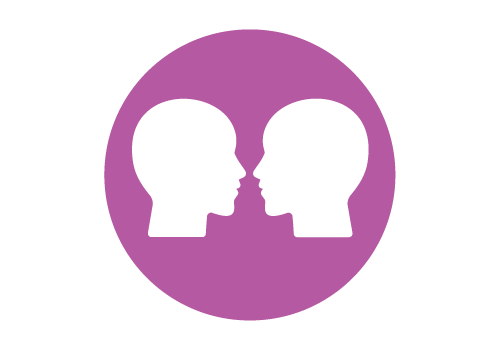At inQuisit, we’re interested in the whole debate around the place of mediation in the good handling of healthcare complaints.
It may be that mediation itself – with an independent, trained mediator brought in from outside – will only ever be viable in the most serious or intractable cases. But we think its sound principles – human factors – could fruitfully be applied to all complaints handling.
Currently, most healthcare complaints are handled entirely through paper-based processes – ie letters are sent – but can you demonstrate that you’ve really listened and understood someone’s perspective if it’s just a paper exercise? After all, it’s not all about words: so much of communication occurs through facial expression and body language. It’s a lot harder to express, or indeed experience, empathy, or to make or hear a sincere apology, in a letter.
We think building an open and receptive dialogue into every healthcare complaints process – including a willingness to meet and talk – could really help, and indeed, potentially, save time and money, not waste it.
This doesn’t mean adding onerous new layers to the process: it means learning to listen, and listening to learn; and being willing to conduct meetings that enable this.
It’s improving these human factors we focus on in delivering inQuisit Training.
The price we pay
At the moment, although there’s plenty of talk about approaches like mediation, are healthcare service cultures really conducive? Possibly not, has been our experience.
We’ve observed a reluctance to hold meetings with complainants – which seems a pity. However understandable.
Dr Stephanie Bown, who works as a mediator for the Centre for Dispute Resolution (CEDR), has spoken of the ‘vacuum’ that opens up between people ‘once a problem arises’. And that, ‘from the patient perspective, this void is susceptible to being filled by ‘conspiracy theories’’.
She talks about this distorting reality, and further polarising the parties (instinctually, our fight or flight response kicks in). It’s this distortion that can both contribute to a reluctance to engage directly, and ironically a greater need to. Meanwhile, this whole time, money is being wasted in avoidance strategies (all that shuffling back and forth of paper).
Mediation is designed to work against this. It brings the parties together in a neutral space, and gives each a chance to speak and listen: a discussion facilitated by an entirely neutral, independent mediator, there essentially to make things safe. The discussion is then allowed to take as long as it needs, but hopefully ends with resolution.
‘The resounding message from the experts’, according to the CEDR, ‘is that mediation is a human process and one that better serves the varying needs of patients and healthcare professionals.’
Quite. Of course, formal mediation can’t be a practical option for everyone, but it’s that ‘human process’ we’d like to see applied more generally. Indeed, we believe a new approach involving more of this could radically reduce the numbers of complaints escalating into unresolved disputes – and then referred on, whether into mediation; or on to the Ombudsman (for NHS complaints); or ultimately, potentially, into litigation.
For what are the real costs of our current system? According to The Law Society Gazette, the NHS currently shoulders an annual spend of £1.6bn on clinical negligence claims alone.
Walking the talk
There is talk in the air, generally, about mediation and the part it might play. And this is, indeed, reflected in the recent rebadging of what was the NHS Litigation Authority as NHS Resolution.
Its web copy talks of ‘Moving upstream’ to resolve things earlier; ‘Reducing legal costs’; and working ‘in partnership with others’.
These are definitely the right noises. And this ‘My expectations’ work, from the Parliamentary and Health Service Ombudsman (PHSO), for instance, nicely captures ‘what good looks like from the user perspective’.
What people most want, when contemplating and making a complaint is to feel:
- ‘confident to speak up’
- ‘that making my complaint was simple’
- ‘listened to and understood’
- ‘that my complaint made a difference’
- ‘confident in making a complaint in the future’
That seems pretty clear. And, again, it’s human: everyone wants and needs to be ‘met’.
Often they just want an apology, a conversation, to sit down with those directly involved. They want assurances that their case has been properly understood, acknowledged and taken seriously, and that no one else will needlessly suffer similarly.
At inQuisit, we want to drive a movement towards real dialogue. We want to see all processes supported by far greater emphasis on the human factors in complaints handling: meeting with complainants; properly understanding their concerns; and allowing for candid discussion – which means, in turn, avoiding defensiveness on the part of the provider.
And this is why it’s these factors we’ll focus on in developing inQuisit Training.

